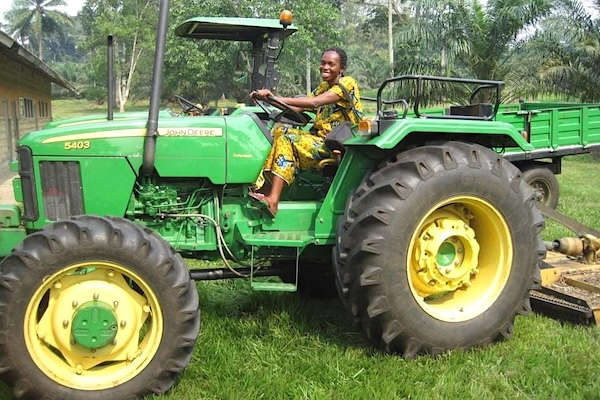The Congolese Ministry of Agriculture (DR Congo) will provide farmers 1,062 tractors by the end of March 2025. In a recent press conference, Agriculture Minister, Grégoire Mutshail Mutomb, said the project would make farmers’ work easier, women’s especially, and help boost the country’s overall agricultural output.
"Our agriculture is at the bottom of the scale; some women still use hoes. We have distributed 260,000 hoes nationwide and are thinking about the mechanization of agriculture in our country," said Mutshail, quoted by Agence Congolaise de Presse. Further details on the project, such as the equipment supplier or final beneficiaries, are yet to be provided.
Greater Mechanization
This last announcement adds to two more unveiled this year, related to agricultural mechanization. In his annual address to the nation, President Tshisekedi said various equipment was being distributed, including 350 tractors. In July, Equity BCDC, a subsidiary of Kenyan group Equity Holdings, signed an agreement with dealer Congo Motors to enable farmers to acquire tractors on a leasing basis.
In line with its ambition to diversify the Congolese economy, the DRC government has chosen agriculture as a target sector, mainly because the supply of essential products, like maize, fails to meet the existing demand. There is no consolidated record of previous efforts to provide agricultural machinery, making it challenging to assess their impact on productivity.
In addition to mechanization, the sector suffers from chronic isolation. A study by the United Nations Development Program (UNDP) on local development plans for 145 territories revealed that only about 20% of the population mostly farmers have access to passable roads. The authorities also plan to improve 38,000 kilometers of agricultural feeder roads.
The increased mechanization could generate at least 4,240 jobs in the country since each agricultural machine requires an operator, a maintenance manager, a spare parts supplier, and an administrative and financial manager to coordinate operations.
A Well-Supported Vision
Private players are also getting involved in harnessing green resources. In October 2024, a $1 billion project led by the Mole Group, based in Switzerland, and headed by a Congolese native, was announced. According to the Minister of Agriculture, this and other projects will be structured as public-private partnerships.
Several donors are also active in the sector, including the African Development Bank, which plans to create over 50,000 jobs in agriculture. With Africa's largest area of arable land, the DRC aims not only for self-sufficiency but also to enhance its status as an exporter of agricultural products by diversifying beyond cocoa and coffee into crops such as soybeans and chilies.










